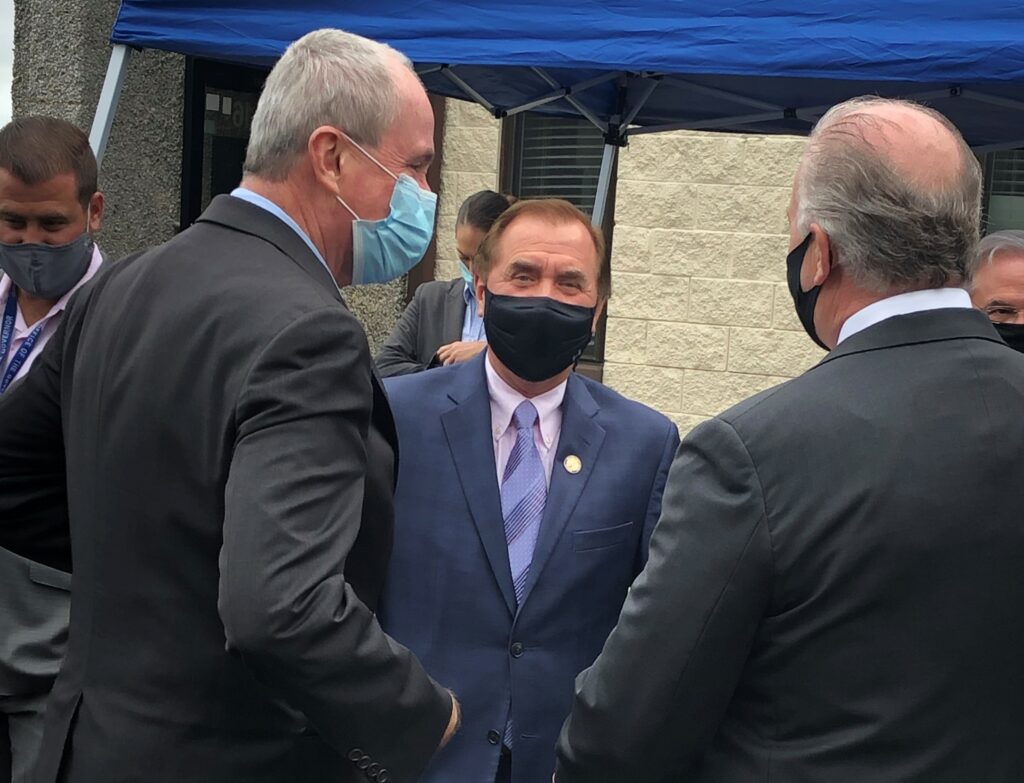Murphy, Senate President Sweeney, Speaker Coughlin, Senate Budget Chair Sarlo, and Assembly Budget Chair Pintor Marin Announce Fiscal Year 2022 Budget Agreement

Today, Governor Murphy, Senate President Sweeney, Speaker Coughlin, Senate Budget Chair Sarlo, and Assembly Budget Chair Pintor Marin announced an agreement on the Fiscal Year 2022 Budget.
“Tax relief is a critical component of a stronger and fairer New Jersey,”said Governor Murphy.“With each budget I have introduced, we have provided greater relief to those who need it most – through our continued expansion of the Earned Income Tax Credit, the establishment and expansion of a Child and Dependent Tax Care Credit, increased tax relief for veterans, middle-class tax rebates, and now the long-overdue expansion of the Homestead Benefit to make sure relief reflects reality. I’m proud to join with my partners in the Legislature to make sure that the best state to live in America is more affordable for families.”
“This is direct tax relief to middle income families and senior citizens who need it most,” said Senate President Steve Sweeney. “The income tax rebate will put money into the pockets of working families so they can support themselves and their children. The increased Homestead rebates will help ease the heavy property tax burden on middle-income homeowners. This extra assistance is especially important for senior citizens on fixed incomes so they can continue to live in their home communities. These benefits will be spent in the local economy, generating jobs and business activity in communities across the state.”
“With these measures we’re building on the promise to make New Jersey more affordable and stand up for its working families and seniors,” said Speaker Craig Coughlin. “I am thankful for the Governor and Senate President’s partnership in ensuring the responsible expansion and strengthening of our state’s commitments toward middle-class tax relief. Through the promise of greater financial security, together these measures will generate more opportunities for residents and our economy to thrive.”
“This is much-needed tax relief going to middle-class families, homeowners, senior citizens, veterans and the working poor, and it comes at a time when it is needed by those who are struggling to emerge from the economic hardship of the pandemic,” said Senate Budget Chair Paul Sarlo. “This is tax relief that will make life more affordable for working families and individuals, with property tax rebates, increased benefits, tax deductions and tax credits. This relief will also put money into the economy, generating financial activity that will boost local businesses, support jobs and help sustain New Jersey’s recovery. We have to be responsible in how we spend the unexpected revenue growth, but middle income tax relief is a top priority.”
“Under these measures, critical property tax relief will be provided to our state’s middle-class families and residents,” said Assembly Budget Chair Pintor Marin. “The impact of this relief, particularly under the increase of the Homestead rebate and expansion of the Earned Income Tax Credit, will ensure New Jersey is place where people can thrive and build a life.”
Key tax relief components of the Fiscal Year 2022 Budget include, but are not limited to:
- Middle Class Tax Rebate: In Fiscal Year 2022, over 760,000 New Jersey families will receive an up to $500 tax rebate due to the Millionaires Tax enacted by the Governor and the Legislature last fall. Families will receive these rebates over the summer. The estimated program cost is $319 million.
- Updating the Homestead Benefit Base Year to 2017: The Fiscal Year 2022 Appropriations Act will update Homestead Benefit payments so that they are based on 2017 property tax information, which is the most recent payment information available, instead of 2006 records. This change is estimated to increase the average benefit for seniors and disabled homeowners by over $130 and the average benefit for lower-income homeowners by $145. The estimated program cost is nearly $80 million.
- Child and Dependent Care Credit (CDCC) Expansion: This budget proposes expanding the CDCC that the Governor and Legislature enacted in 2018 so that it is both available for families making up to $150,000 and refundable. This change will benefit over 80,000 more families, and increase the average credit for those making under $30,000 to $277. The estimated cost is $17 million.
- Extending the Veterans Property Tax Deduction to Peacetime Veterans: The Appropriations Act will support the expanded deduction approved through the 2020 ballot measure. The estimated foregone revenue cost is $15 million.
- Expanding the Earned Income Tax Credit (EITC) Age of Eligibility of 21 to 18 and to Those Over Age 65: The Governor and the Legislature have provided meaningful middle-class tax relief by boosting the EITC from 35 percent to 40 percent since 2018. Last year, the Governor led on expanding eligibility to an additional 60,000 New Jersey residents by lowering the minimum age from 25 to 21. In Fiscal Year 2022, Governor Murphy and the Legislature will expand eligibility to those 65 and older without dependents and to those as young as 18, which is projected to help another 90,000 residents – roughly 70,000 over 65; and 20,000 between the ages of 18 and 21. The estimated foregone revenue cost is $13 million.





